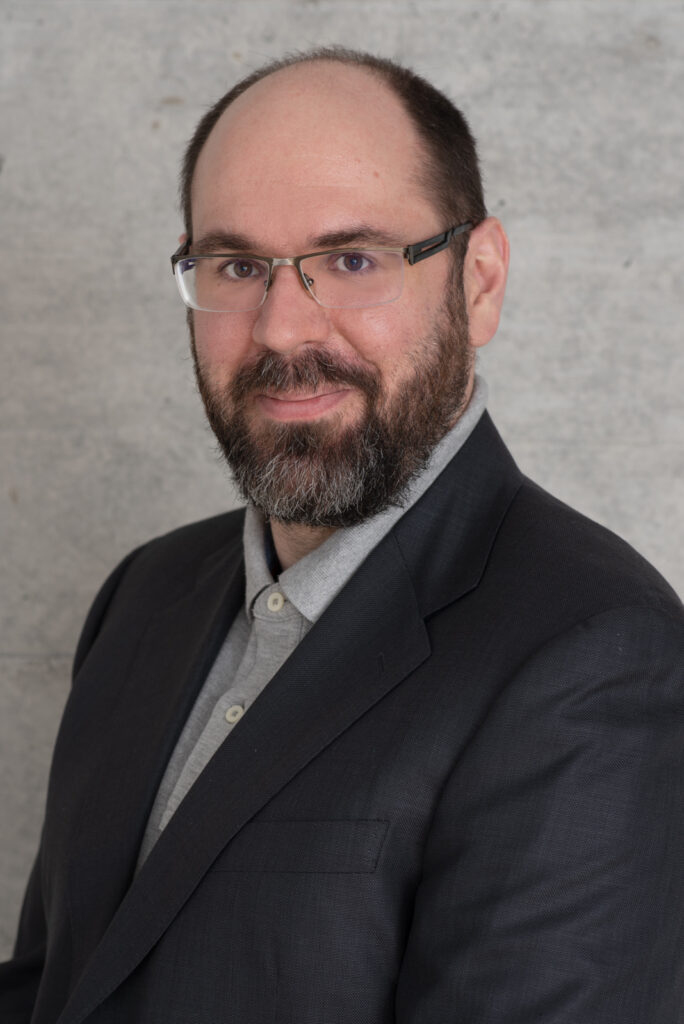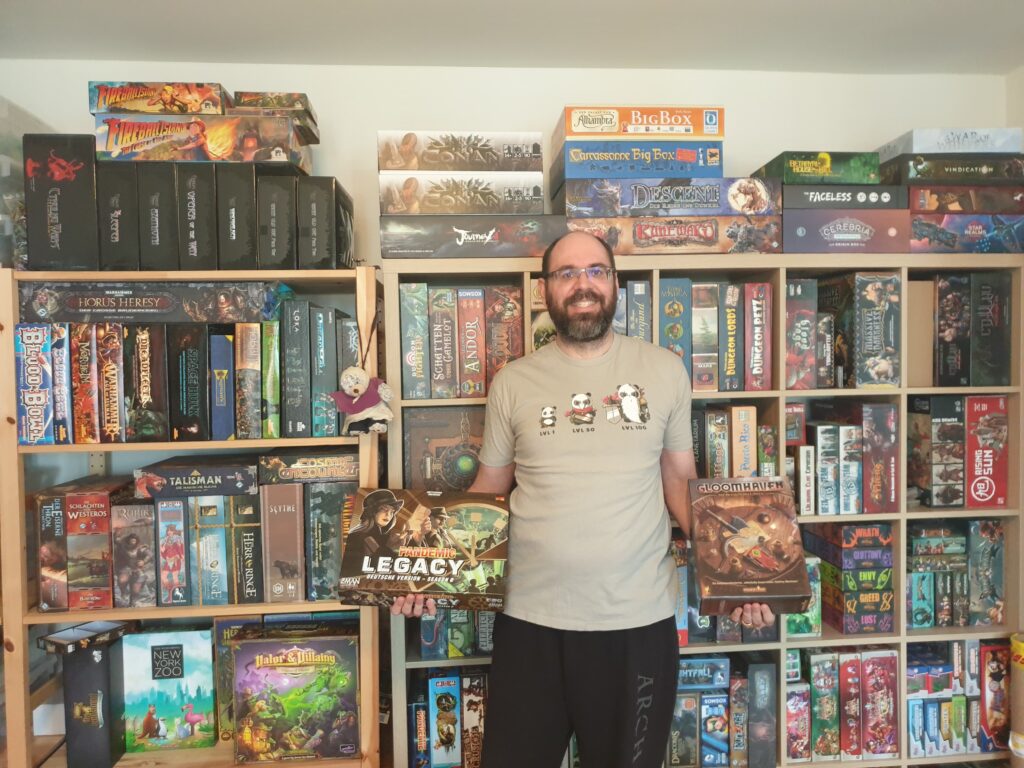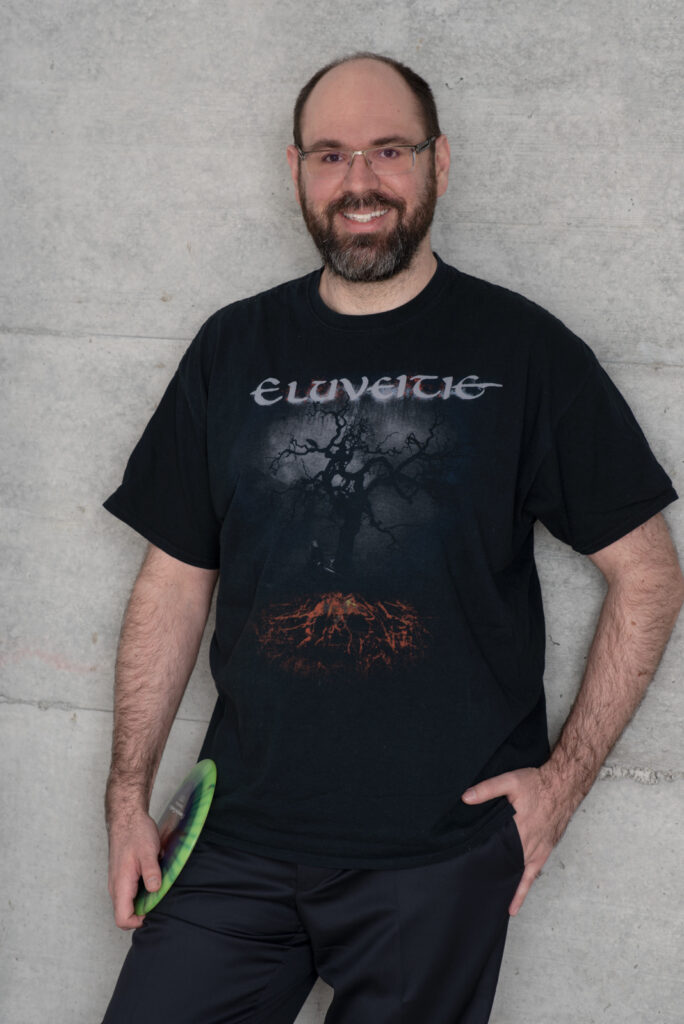Dr Silvio Peng joined us in October 2020 as a Consultant in Operations. Microbiologist, biocompatibility specialist, sports fan and owner of one of the largest board game collections in Switzerland, Silvio is our next Consultant to sit in the hot-seat…
Tell us about your career journey so far…
After my Bachelor studies in Biology & Chemistry, I stayed on at ETH Zurich to complete my Master’s in Microbiology and Immunology. My interest in science, and more specifically microbiology, stems from a fascination with how such small molecules or living being can have a significant impact on the human body. For example, take Botulinum (Botox) – the most toxic substance currently known – it works in a very specific way, damaging the synapse between the nerve cells to block movement. Of course, COVID is another timely example of this kind of impact – in the way that it has affected the whole world.
My passion for learning encouraged me to continue with my studies at ETH, to complete my PhD thesis on the survival of Shiga-toxin producing Escherichia coli in raw milk cheese, where I also had the opportunity to learn the basics of cheese making. Given the tools and ingredients, I could happily produce my own cheese now, although I don’t know how tasty it would it be!
Following my PhD, I decided the time had come to move from academia to industry. I started a contract job at Zimmer as a Junior Project Microbiologist, then became a Project Chemist with them a couple of years later. My Biology and Chemistry background provided a useful knowledge set for the work which included biocompatibility, cleanliness, reprocessing, and sterilisation for implants and instruments.
Why the move from food to medical?
Sometimes, things just happen by chance. After my PhD I applied for jobs in both the food and medical industries. Food safety and medical device safety share a lot of principles – of course the application is very different though. The more I found out about the medical industry, the more attractive it sounded.
My move to medical was a good decision because for me, it is important to work on valid products that have a genuine need to be on the market. Within medical devices, I get to work on something that improves people’s lives. My mother and father have both received implants, and when you see the people close to you directly benefitting from the kind of work you do, I think that is something really validating.
The medical industry also provides the opportunity to continually learn new things. I like to update my knowledge, and work in areas that aren’t so “routine”. The biocompatibility field for me provides the kind of variety that I enjoy.
You joined us during COVID. What was job hunting during a pandemic like?
My time at Zimmer provided me with a solid foundation for working in medical devices, but after learning 90% of what was possible within my role, I was ready to experience something new. At the time of moving jobs however, I found myself in the middle of a starting pandemic which meant that there were less jobs available.
Communication for job opportunities was all over the phone or via video calls so rather than attending job interviews, there was a lot more time spent sitting at home! Luckily, I know quite well who I am, I knew what I wanted to do, and I had options – although I’m a specialist, I can adapt my skills. So eventually, a connection through my former supervisor at Zimmer led to what is now my current role – working as a Biocompatibility Specialist for Congenius at Synthes.

As a Biocompatibility Specialist, in your view what are some of the key development areas in this space?
In the last months and years there has been a paradigm shift on which tests are emphasised. This is mainly because the analytical techniques that are now available have a lot higher sensitivity than they had ten years ago.
For example, you can now look for the tiniest amount of potential residue using highly specialised instrumentation such as gas chromatography, liquid chromatography and mass spectrometry. That is why there is now more of an emphasis on performing chemical characterisation to inform your risk calculations, before having to resort to biological testing.
This is a positive development, because it allows for credible data collection whilst reducing the need for animal testing. Using the in-vitro tests and chemical data as far as possible to achieve an acceptable level of biological safety is for me, a basic guiding principle that I will continue to follow throughout my career.
What does the future look like for avoiding animal testing in your view?
The ISO standard on Biocompatibility communicates that animal testing should be avoided as much as possible. The emphasis is now on chemical characterisation, but if it is required it must be done. Personally, I prefer to use in-vitro models because it allows for work with cell cultures and sometimes with bacteria. In the future, we may also have the opportunity to work with more elaborate cell culture systems – there is research underway regarding the creation of artificial organs in the lab that you can expose to certain chemical tests. Having an in-vitro organ or system on which you can test rather than a single cell culture would be a very exciting development, although this is probably still some years away.
In the long term it would be great to think that we could completely avoid animal testing, but in the short term, as long as we are talking about the safety of a device that goes into a human, mankind will always be willing to burden some animals for the profit of humans. But at least we’re moving in the right direction with trying to limit biological testing as much as possible.
You’re clearly passionate about the medical industry. How do your activities outside of work complement your professional life?
I once took a personality test that identified me as both creative and analytical. My job allows me to exercise the analytical side of my personality, whilst my hobbies provide more of a creative outlet through gaming and music (I play guitar and enjoy listening to metal). That said, despite my work life being heavily driven by regulations and boundaries, I still have to sometimes be creative with how I come up with solutions to find the most efficient way to achieve an end result.
In my spare time I am a big gamer – table-top games, board games and video games. With some types of games (like the worker-placement style) there is a lot of logical thinking, calculation and resource management involved which correlates with problem solving in my work life.

I also really love sports – both actively and passively. I’m a huge FC Zurich fan, and I’m goalkeeper for the Sport Club Zurich Affoltern floorball team. It’ll be great to get back to the stadium to watch some live matches, and to see my floorball team at training again once COVID restrictions ease. I’ll be glad to get back to playing Disc Golf more often too. Similar to ball golf, the aim is to get your disc into the basket in as few throws as possible. All ages, all genders and all builds can play, making it a really inclusive sport to be involved in.

Given how you’ve described your personality, what kind of impact do you aim to make on the medical industry (and more generally)?
From a professional perspective, I just want everything I produce to be of a high standard – even if it’s just a small memo, it needs to be right. I also think there’s not much you can achieve alone – it’s about contributing to a team effort.
More generally, I like to share knowledge and provoke thought about what is really important. I like to be that “needle” that prompts conversation, even if the topic is uncomfortable. For example, I use my academic knowledge to help persuade those who are perhaps unsure about getting the COVID vaccination. I think that if you can change one person’s mind for the better, then you can make a positive impact.
I also enjoy making knowledge accessible by finding simple, creative and engaging ways to explain complex topics. I once explained to a friend how RNA mutations of influenza viruses function using dice with different colours and numbers. By mixing and matching the dice I explained the mutation shift, mutation drift and why one of these is more important for seasonal influenza, and how a big change at once can lead to an epidemic.
You seem to enjoy inspiring others through knowledge – who or what inspires you in your job?
I am inspired by the medical industry itself, because of the people we’re able to help through what we do. The basic principle of our work is to increase the safety of medical devices that assist people in life. To refer to my mother who I mentioned earlier – she can walk with less pain as a result of her implant. Being part of an industry that facilitates that kind of life improvement inspires me every day.


